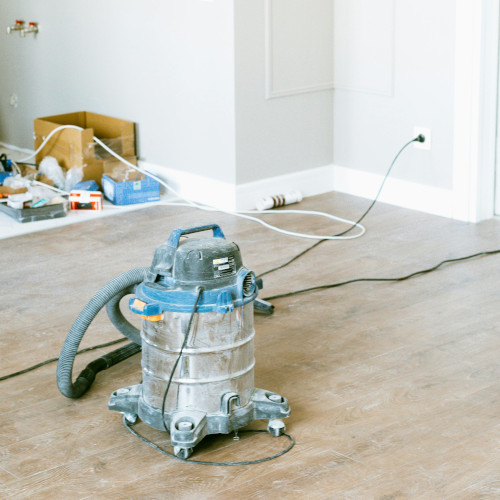
How to Find a CAPS Certified Contractor
If you are looking at aging-in-place modifications for your home, then finding a certified CAPs contractor who has gone through the proper...
Posted by

Aging in place has become an increasingly popular choice for seniors who prefer to remain in their homes as they grow older. While the comfort of familiar surroundings can be invaluable, the safety and functionality of the home must be tailored to meet the evolving needs of older adults. Certified Aging-in-Place Specialists (CAPS) are contractors trained to make homes safer and more accessible for seniors. Whether it's installing grab bars in the bathroom or redesigning the kitchen for wheelchair accessibility, CAPS professionals are experts in adapting homes for aging residents.
This guide will help you understand what a CAPS certified contractor is, why their expertise is crucial for aging in place, and how to find the right professional for your needs.
The CAPS designation, issued by the National Association of Home Builders (NAHB), indicates that a contractor has specialized training in home modifications for seniors and individuals with disabilities. CAPS professionals are equipped to create designs that prioritize safety, accessibility, and aesthetics without compromising the comfort or value of a home.
Hiring a CAPS certified contractor ensures that modifications will meet industry standards while addressing the unique requirements of seniors or individuals with mobility challenges.
Choosing a CAPS certified contractor is essential for creating a safe and livable environment for seniors. Here's why their expertise is indispensable:
Common household features like stairs, bathtubs, and narrow doorways can pose risks to older adults. CAPS professionals address these hazards by installing safety features such as ramps, non-slip flooring, and wider doorways.
A well-modified home allows seniors to perform daily activities independently, reducing the need for outside assistance. Features like lowered countertops, walk-in showers, and lever-style door handles make everyday tasks easier and more manageable.
CAPS contractors prioritize both safety and comfort. Their designs ensure that homes remain welcoming and functional for seniors, fostering a better quality of life.
Well-executed aging-in-place modifications can add value to a home. Potential buyers may see the adaptations as a bonus, particularly as the demand for accessible housing continues to grow.
Finding the right CAPS certified contractor requires research and preparation. Follow these steps to ensure you choose a professional who meets your needs:
To ensure you're hiring the right professional, ask these critical questions during your consultation:
The contractor's answers should give you a clear sense of their expertise, reliability, and commitment to meeting your needs.
While most CAPS certified contractors are trustworthy professionals, it's important to watch for warning signs:
Taking the time to vet contractors thoroughly ensures a smoother process and a safer, more functional home.
Finding a CAPS certified contractor is a crucial step in ensuring your home is safe, comfortable, and accessible for aging in place. These specialists offer the expertise needed to create long-lasting, practical solutions tailored to seniors' unique needs. By following the steps outlined in this guide, you can confidently choose a professional who prioritizes safety, independence, and quality of life for you or your loved ones.

If you are looking at aging-in-place modifications for your home, then finding a certified CAPs contractor who has gone through the proper...
Posted by

If you are looking at options to stay in your own home as your age then you might not know where to start. The National Association of Home...
Posted by

For caregivers supporting aging parents at home, assessing their needs, prioritizing home safety, and creating a solid care plan are...
Posted by